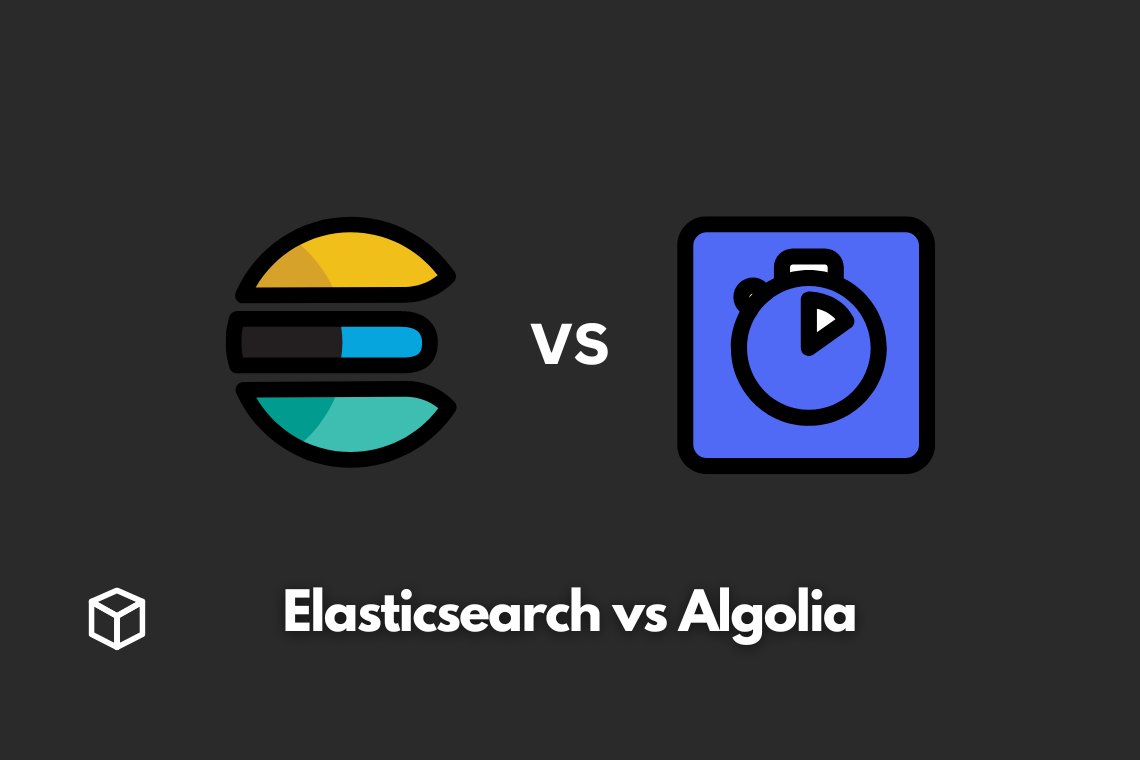Search functionality is a crucial aspect of modern web and mobile applications.
It allows users to quickly and easily find the information they need, whether it’s a product on an e-commerce website or an article on a news site.
As the amount of data available on the internet continues to grow, the need for powerful and efficient search engines has become more important than ever.
Two popular solutions for search engine functionality are Elasticsearch and Algolia.
Both of these technologies are highly advanced, but they have different strengths and weaknesses, making them suitable for different types of applications.
In this article, we’ll take a detailed look at Elasticsearch and Algolia, compare their features, and discuss when you might want to use one over the other.
Elasticsearch
Elasticsearch is a powerful, open-source search engine that is built on top of the Lucene library.
It is designed to be highly scalable and can handle large amounts of data. Some of the key features of Elasticsearch include:
- Real-time search: Elasticsearch can index and search data in near real-time, making it suitable for applications that need to provide up-to-the-minute results.
- Distributed architecture: Elasticsearch is designed to be run on a cluster of machines, which allows it to scale horizontally to handle large amounts of data.
- Flexibility: Elasticsearch is highly configurable and can be used for a wide range of use cases, from simple text search to more complex analytics.
- Advanced query language: Elasticsearch has a powerful query language that allows for complex and precise searches.
Some of the main advantages of using Elasticsearch include its scalability and flexibility.
Because it is built on top of the Lucene library, it is able to handle large amounts of data and can scale horizontally to handle even more.
Additionally, Elasticsearch’s advanced query language and flexible schema make it a good choice for applications that need to perform complex and precise searches.
Algolia
Algolia is another popular search engine solution that is designed to be fast and easy to use. Some of the key features of Algolia include:
- Speed: Algolia is designed to be fast, even when dealing with large amounts of data. It uses a unique indexing and search algorithm that allows for lightning-fast searches.
- Ease of use: Algolia has a simple API and a user-friendly dashboard that makes it easy to set up and use.
- Customizable ranking: Algolia allows you to customize the ranking of your search results to ensure that the most relevant results are returned first.
- Hosted service: Algolia is a hosted service, which means that you don’t need to worry about managing the infrastructure yourself.
Some of the main advantages of using Algolia include its speed and ease of use.
Because Algolia uses a unique indexing and search algorithm, it is able to provide fast search results even when dealing with large amounts of data.
Additionally, Algolia’s simple API and user-friendly dashboard make it easy to set up and use, even for users with limited technical expertise.
Comparison of Elasticsearch and Algolia
When comparing Elasticsearch and Algolia, it’s important to consider the specific needs of your application. Here are a few things to keep in mind:
- Performance: Elasticsearch is generally considered to be more powerful than Algolia, but Algolia is faster and more responsive.
- Scalability: Both Elasticsearch and Algolia can handle large amounts of data, but Elasticsearch is more scalable and can handle even larger datasets.
- Ease of use: Algolia is generally considered to be easier to use than Elasticsearch, thanks to its simple API and user-friendly dashboard.
- Cost: Elasticsearch is an open-source solution, which means that it is free to use. Algolia, on the other hand, is a paid service, which means that you will need to pay for the amount of data and number of requests you use.
Use cases
When deciding between Elasticsearch and Algolia, it’s important to consider the specific needs of your application.
Here are a few use cases where Elasticsearch may be a better fit:
- Applications that need to handle large amounts of data.
- Applications that require complex and precise searches.
- Applications that need to perform real-time analytics.
On the other hand, here are a few use cases where Algolia may be a better fit:
- Applications that require fast and responsive search results.
- Applications that need to be easy to set up and use.
- Applications that don’t require a large amount of data.
Conclusion
Both Elasticsearch and Algolia are powerful search engine solutions that are suitable for different types of applications.
Elasticsearch is an open-source, highly configurable and scalable search engine that is built on top of the Lucene library.
Algolia is a hosted service, which is designed to be fast and easy to use, it is a paid service.
When choosing between Elasticsearch and Algolia, it’s important to consider the specific needs of your application.
If you need to handle large amounts of data, perform complex and precise searches, or perform real-time analytics, Elasticsearch may be the better choice.
But if you require fast and responsive search results, ease of use, and don’t require a large amount of data, Algolia may be the better option.
Additional Resources
- Elasticsearch: https://www.elastic.co/
- Algolia: https://www.algolia.com/
- Elasticsearch documentation: https://www.elastic.co/guide/en/elasticsearch/reference/current/index.html
- Algolia documentation: https://www.algolia.com/doc/




